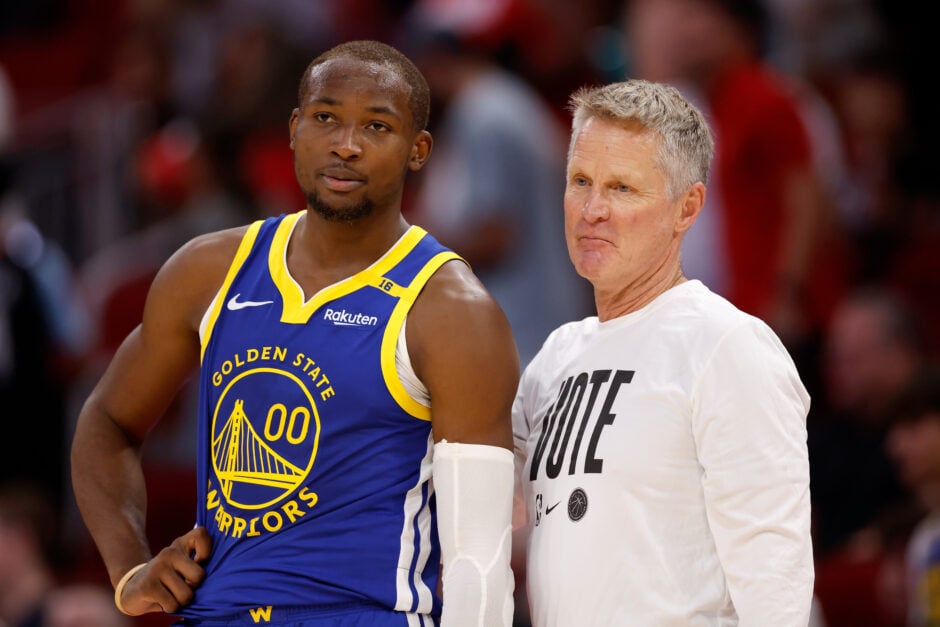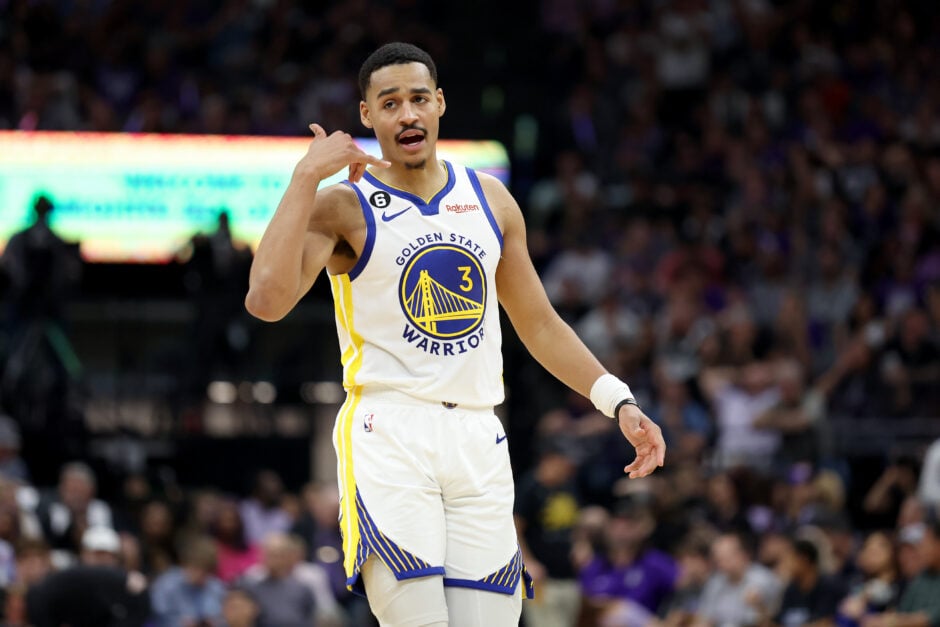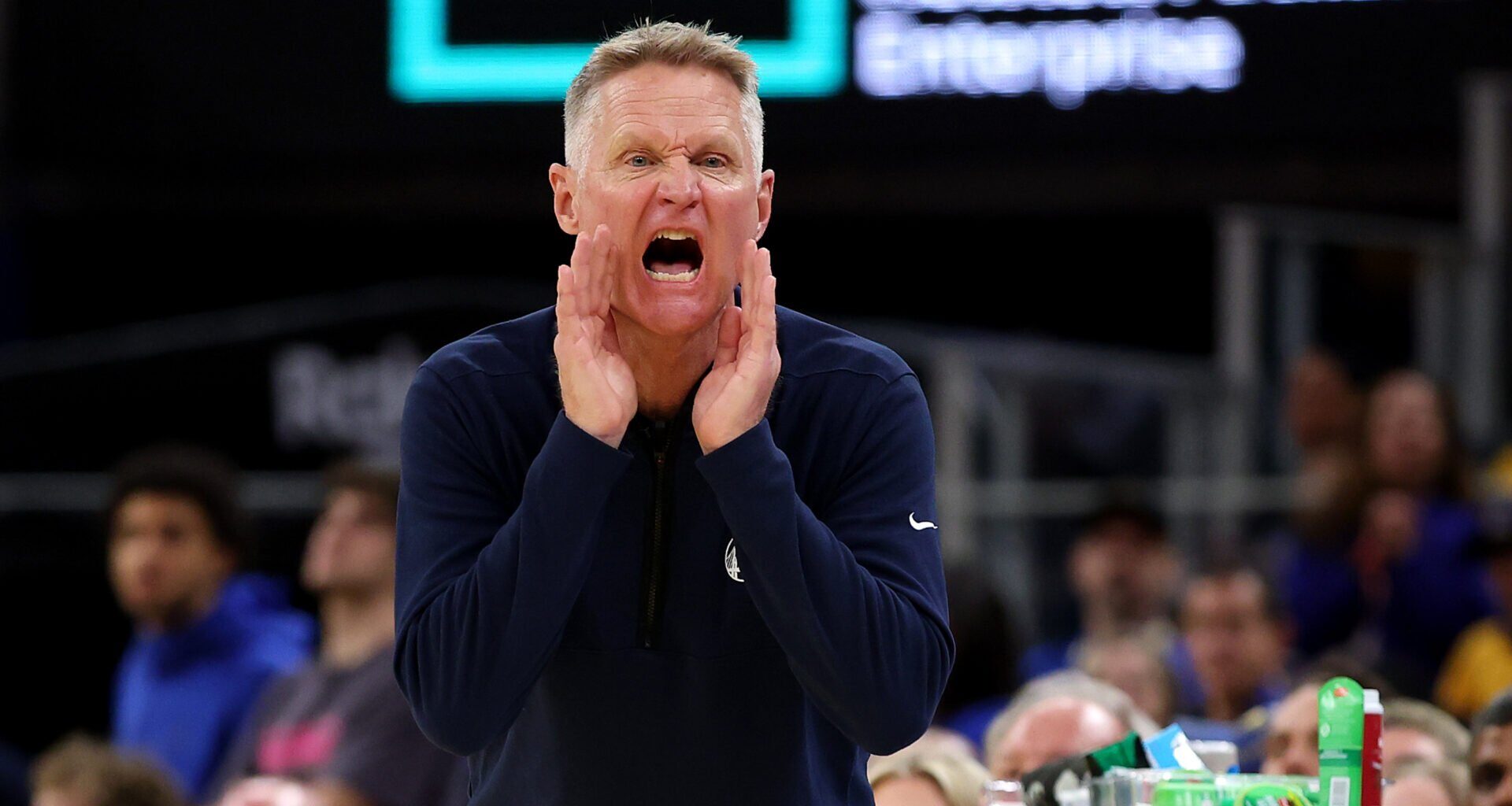Steve Kerr recently sparked debate by admitting he’s ‘too old’ to develop young players.
The four-time champion coach revealed he relies on younger assistants for player development duties.
The conversation intensified amid Jonathan Kuminga’s uncertain status with the Golden State Warriors, as Shannon Sharpe believes Kerr has big influence on it.
His critics argue Steve Kerr lacks trust in young talent or the ability to nurture their growth effectively.
 Photo by Tim Warner/Getty ImagesWarriors expert Dan Dibley defends Steve Kerr’s veteran-focused strategy
Photo by Tim Warner/Getty ImagesWarriors expert Dan Dibley defends Steve Kerr’s veteran-focused strategy
Warriors expert Dan Dibley disagrees with the criticism, defending Steve Kerr’s approach.
He argues the coach’s primary responsibility isn’t developing rookies given the team’s aging core of Stephen Curry, Draymond Green, and Jimmy Butler.
Dibley highlighted the Warriors’ unique development system through their G-League affiliate Santa Cruz, citing Jordan Poole as a success story.
“Every coaching staff, every situation is different when it comes to development,” Dibley said.
“If you’re the Warriors and you’ve got Steph and Draymond and now Jimmy Butler, three veterans who are near the end of their careers, still fancying themselves in a championship window, your number one job is to put out the best team to win right now.”
Jordan Poole’s development path proves Warriors system works
Dibley emphasized that development requires player commitment, taking Jordan Poole as an example.
“Jordan Poole gets relegated to Santa Cruz. He goes down there, he busts his a_s, he gets better, he earns his way back up, and the rest is history,” he explained.
Poole played fewer than 60 games in his first two seasons before breaking out in his third year with over 70 games and 51 starts.
His scoring jumped from 18.5 points per game to 20.4 the following season after he proved that he is ready to make a leap.
 Photo by Ezra Shaw/Getty Images
Photo by Ezra Shaw/Getty Images
However, Poole was eventually traded to Washington. Dibley attributed this to style conflicts rather than development failures.
He also noted Poole’s individual approach clashed with the Warriors’ system despite his statistical success.
“I think that was part of the end of Jordan Poole story because he started playing a certain way that wasn‘t fitting with what they were trying to do, even though he averaged 20 a game that year,“ Dibley explained.
“The way he went about it was not the way that some of the vets were enjoying and thriving in playing,” Dibley added, also referencing the well-documented Draymond Green incident.
